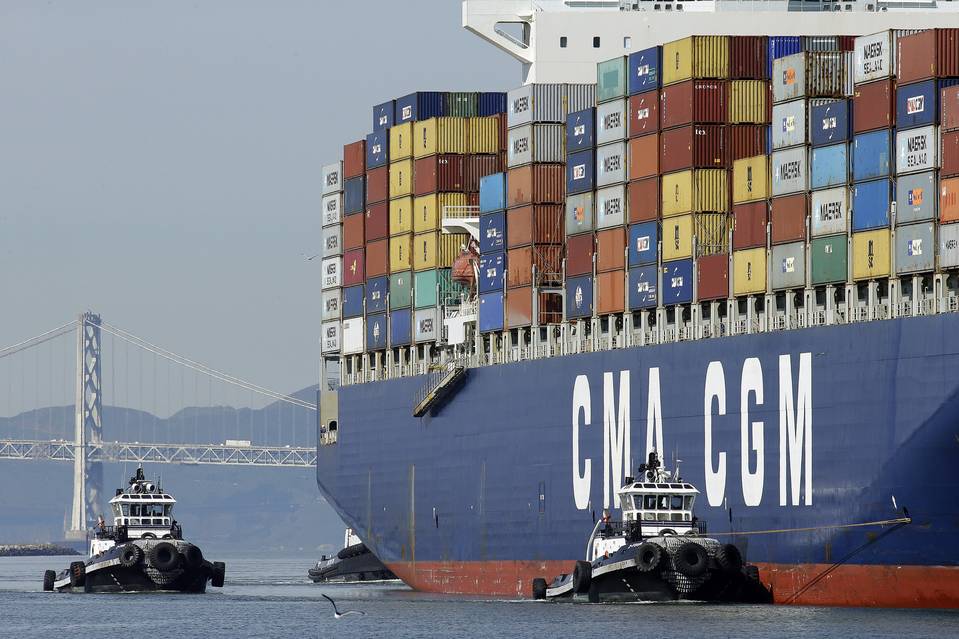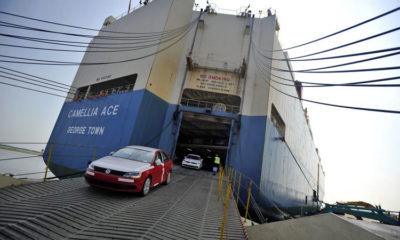- Global Shipping Confidence Dips on US – China Trade War
A latest Shipping Confidence Survey has shown a dip in confidence in the shipping industry over the past three months.
Also, respondents to the survey carried out by seatrade-maritime.com have forecast higher freight rates for the container and tanker shipping segments.
The average confidence level in the shipping industry has fallen marginally in the three months to May 2019 to 6.1 out of a possible 10, compared to 6.2 in the three months to February 2019, the survey revealed
The dip in overall confidence was attributed to the ongoing concern over trade wars and increased regulation.
“A small dip in confidence is not surprising given the recent volatility generated by the US-China trade wars, the heightened tension in the Arabian Gulf, the failure to conclude Brexit negotiations, and general political instability in many parts of the world,” said Richard Greiner, partner, shipping & transport at BDO.
“Trade wars certainly formed the over-arching theme for this quarter, but they are not the only recurring topic. The cost and technical implications of complying with existing and incipient regulation was referenced on a number of occasions, typified by the respondent who noted that the high level of regulation ‘makes it extremely difficult to make a profit’,” he added.
On a brighter note, the number of respondents expecting higher freight rates over the next 12 months in the tanker market was up by four percentage points on the previous survey to 55 per cent, with charterers (75%) leading the way. The numbers expecting higher container ship rates rose by nine percentage points to 35 per cent.
In the dry bulk sector, however, expectations of rate increases were down overall from 52 per cent to 48 per cent, with charterers the only category recording an increase in expectation levels.
When asked to estimate the level they expected the Baltic Dry Index (BDI) to reach in 12 months’ time, 50 per cent of respondents anticipated a figure of between 1000 and 1499, while 22 per cent put the likely level at between 1500 and 1999. “One could be more bullish about the BDI if there was less global tension around,” said one respondent.
The quarterly survey also noted that the likelihood of respondents making a major investment or significant development over the coming year was up from 5.3 to 5.4 out of 10.0. Owners’ confidence in this regard was up from 5.4 to 6.3, while the rating for charterers was 5.6 compared to the survey high of 7.3 recorded last time. The confidence of managers and brokers in this category was also down, from 5.6 to 4.8 and from 4.9 to 3.9 respectively.
The overall performance over the next 12 months is most likely to be influenced by demand trends as cited by 26 per cent of respondents, followed by competition by 19 per cent of respondents and finance costs at 13 per cent.
“Despite the challenges the industry is facing, there are a number of positive indicators. New technology is making shipping more attractive to investors, and will moreover act as a trigger to accelerate the pace and extent of recycling. Higher freight rates should logically follow, and those who hold their nerve will ultimately benefit, “Reiner said.



 Naira4 weeks ago
Naira4 weeks ago


 Naira3 weeks ago
Naira3 weeks ago


 News4 weeks ago
News4 weeks ago




 Naira4 weeks ago
Naira4 weeks ago


 Jobs3 weeks ago
Jobs3 weeks ago
 Naira3 weeks ago
Naira3 weeks ago


 Travel3 weeks ago
Travel3 weeks ago
 Naira3 weeks ago
Naira3 weeks ago


















